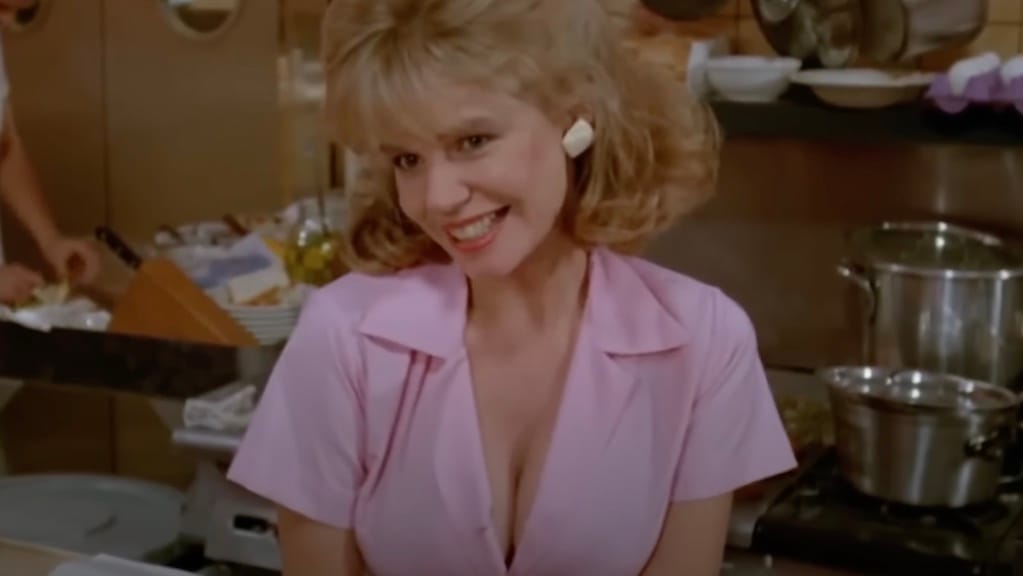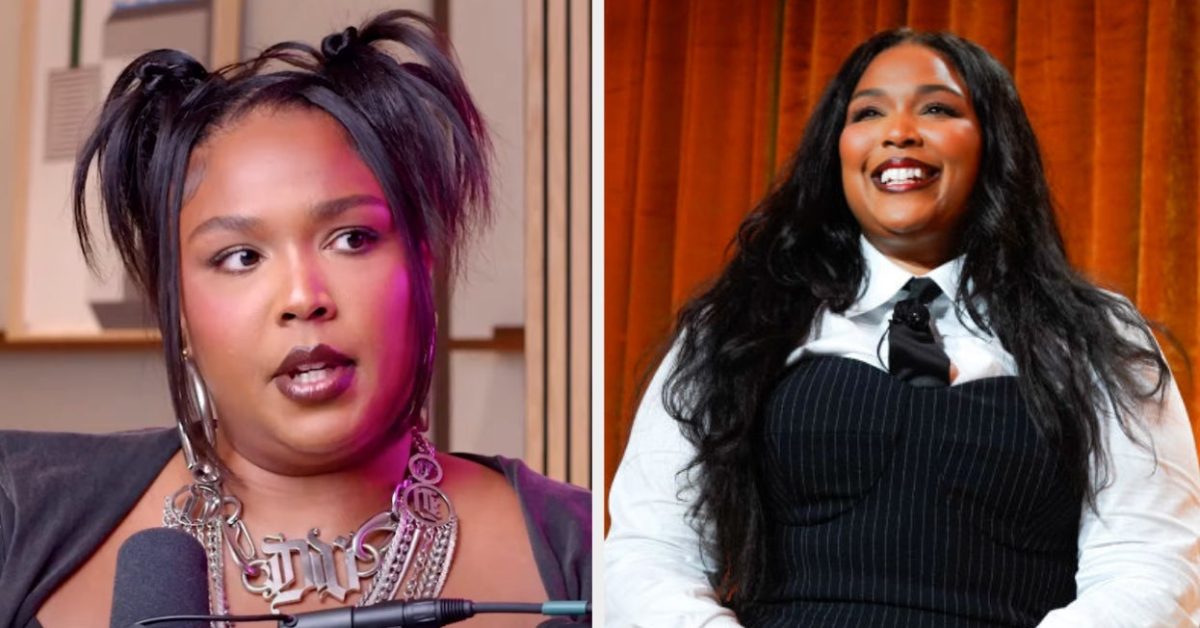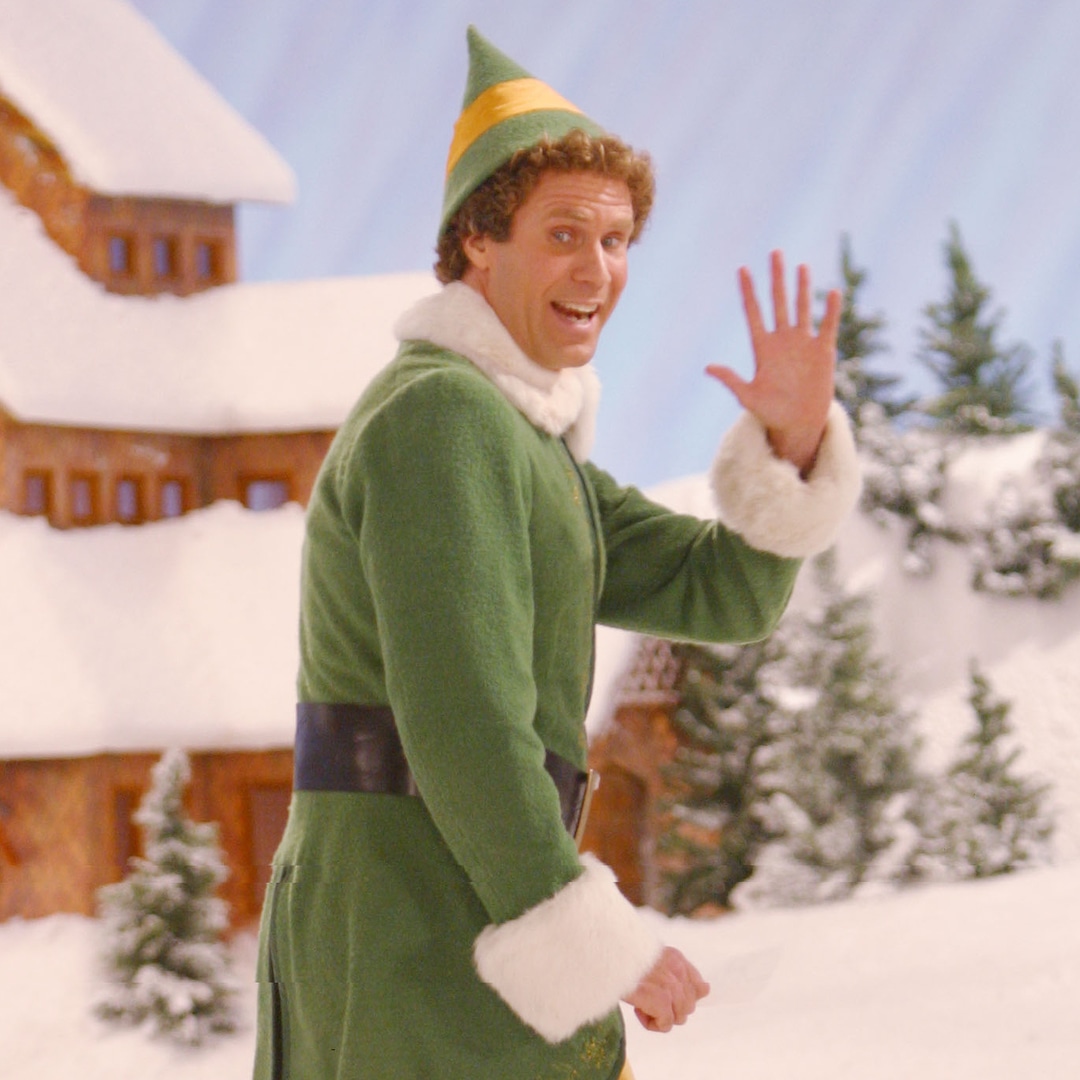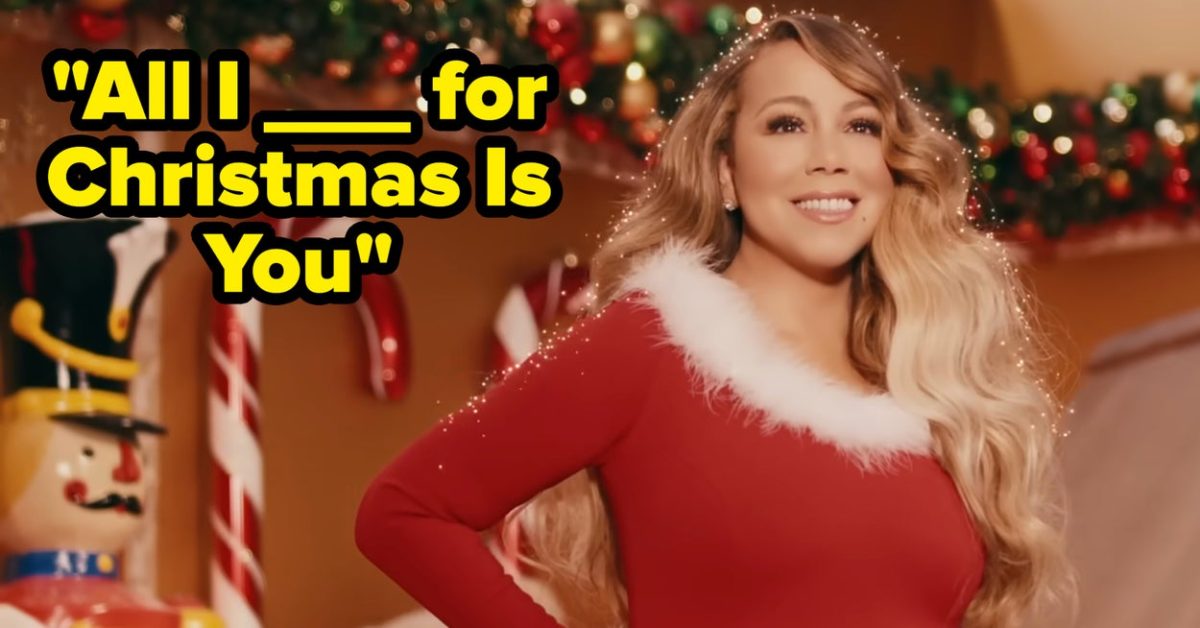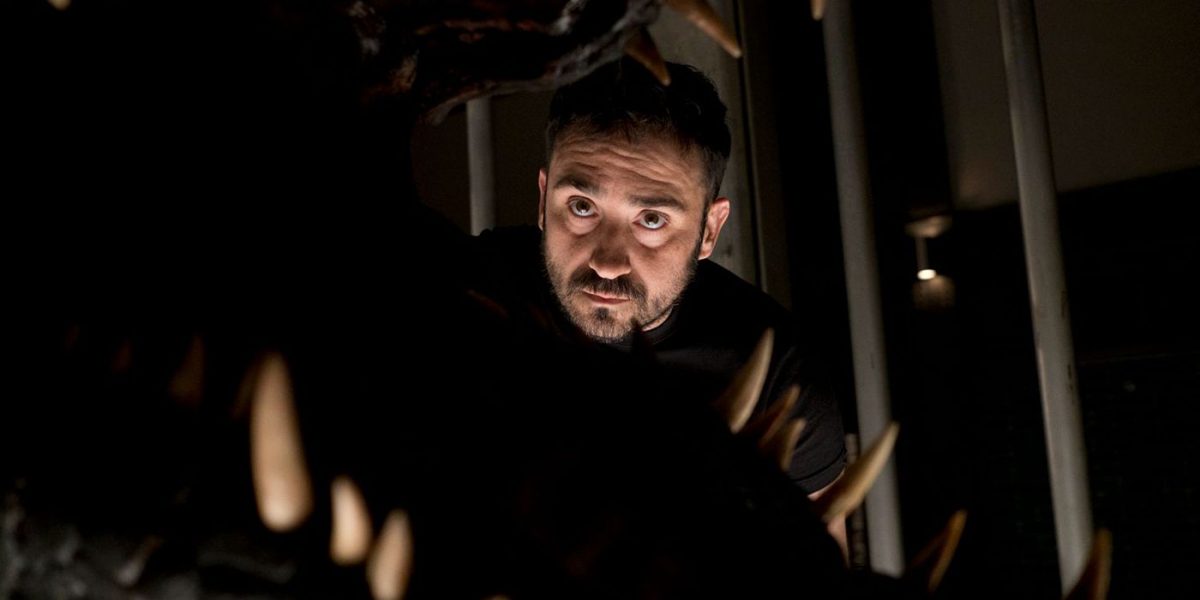
‘Society of the Snow’ Director Has a Secret Project He’d Do at Netflix
Feb 13, 2024
The Big Picture
J.A. Bayona reflects on his first Oscar nomination for Best International Picture for
Society of the Snow
and the importance of working on a Spanish-language film.
Bayona believes that the story of
Society of the Snow
resonates with audiences worldwide because it emphasizes unity and collaboration in difficult times.
Bayona discusses the importance of storytelling and its ability to give meaning and sense to reality, drawing connections between
Society of the Snow
and his other films.
J.A. Bayona has had a busy couple of years. He’s directed for television series like The Lord of the Rings: The Rings of Power right after helming Jurassic World: Fallen Kingdom before then taking on his now Oscar-nominated stunner of a true story Society of the Snow. It’s a miracle he finds any time to sleep. Now, on the cusp of potentially winning a Academy Award to call his own, Bayona is reflecting on where his career has been, working with Netflix on this film, and what the future may hold for him if he were to team up with the streamer again.
Society of the Snow In 1972, the Uruguayan Air Force Flight 571, chartered to fly a rugby team to Chile, catastrophically crashes on a glacier in the heart of the Andes. Only 29 of the 45 passengers survived the crash and finding themselves in one of the world’s toughest environments, they are forced to resort to extreme measures to stay alive.
COLLIDER: Firstly, I want to start off with congratulations on the nomination, sincerely.
J.A. BAYONA: Thank you so much.
Where were you when you first heard?
BAYONA: We were at the offices, and we were listening to it on television. We jumped and screamed, and we were very happy. Extremely happy. We are very happy with it.
I know you’ve gotten awards of recognition in the past, but I believe this is the first nomination you’ve gotten for this, am I correct?
BAYONA: The first Oscar nomination for Best International Picture, yes.
How does that feel? I want to get into the particulars of the film, but that’s a big moment for this movie and for you.
BAYONA: Yeah, I’ve been working in Spain for a long time since my first movie, but also I’ve been working in the US. It’s actually quite hard to be involved in a Spanish language film. It’s so different to be working on than Jurassic World [Fallen Kingdom] or the Lord of the Rings [The Rings of Power] — I did the first two episodes. It’s a different way. You have the impression that it’s probably harder. [Laughs] You need to raise your voice a little higher in order to be heard. It’s a very competitive category, Best International Film, because you have the best films from all over the world, so it’s great. It feels great to be selected by the Hollywood Academy.
I have been reading you talk elsewhere about the importance of this movie being in Spanish. It made me think of when, at the Oscars a couple of years ago, Bong Joon-ho talked about “the one-inch-tall barrier of subtitles.” In that line of thinking, what is your perspective on the way this film has really resonated with people and now gotten this award?
BAYONA: Well, first of all, we have the luxury of working with the people who lived the story. They gave us their testimony, and we wanted to portray that in the most authentic way possible. I think that somehow now seeing the reactions of the audiences all over the world, because the movie now has become a whole phenomenon worldwide, it’s like everywhere, it’s kind it tells you how much the story resonates with the moment we live in now, somehow. I think it’s a story that tells us about a very different context and how we, united, can we go through that situation? It’s something that I was always, from the very beginning, very obsessed with — how the story tells us that we are all the same, that we are all on the same plane, and we need to collaborate, we need to work together in order to fix it and to go through it. So, I think that message, seeing the reaction, really resonates with audiences all over the world now.
With what you’re saying about us all being on the same plane, there’s a real humanity that you give to all the characters. Even as there’s a large ensemble cast, you really feel that care for all of them. What was the process like when you were setting out to make sure to represent all of these people and then also this immense story that they underwent?
BAYONA: You know, our main character in the story — I don’t like to call him the protagonist, but he is a narrator — he has been an extra, always, in this story. He was always somebody in the background. And when you see the film, you understand how important he was in the story. Everybody was important. Everybody is important. We are all part of the same team, and everybody had a role, even those who look like they didn’t do much; they were important to keep and maintain the tone and the calm in that plane. They were important to support a role for the other ones. Sometimes the warrior is not the one that is fighting, but the hero is the one that makes it possible that that guy will fight.
So, I think that comes from the original book from Pablo Vierci. He has a very compassionate look on it and every single character. He has the ability to find a role for each of them, and that’s a statement. We are all important and we are all necessary in order to defeat the battles that we have ahead of us every day.
J.A. Bayona Shares the Impact That ‘Society of the Snow’ Had on Him
It sounds like that story really had an impact on you. Obviously, you made this film, but it sounds like it really hit home with you personally.
BAYONA: Yeah, I’ve been 10 years with this film, so there should be something there that definitely keeps the spark alive during all of the process. It’s a very special film. There are moments that for me were like images that stay there all the time to give me strength. There is one moment, for example, in the film, when you see somebody dying, giving support to the other ones, telling them, “You’re gonna make it.” That is so powerful. This idea of delivering yourself to the other ones, I think it’s something that connects really well, also, with all the films that I’ve done. There is something in common with other films that I’ve done, and I need that. I need that link with the stories that I’m telling in order to be able to put them and have the authority to bring them to the screen.
When you’re talking about a moment where someone who’s dying is talking to them, I’m trying to remember his name, but there’s an actor who was in the movie The Delinquents recently.
BAYONA: Yeah, Esteban Bigliardi.
Yes! That scene, about midway through the movie, is such a striking moment where there’s obviously these huge moments of spectacle and fear, but then we always get back to people. It always comes back to them.
BAYONA: You know what I like about that scene? It’s one of my favorite moments in the film because it tells about what we do as storytellers. It’s like, there is no meaning in life. It’s you that needs to find the meaning. And by telling a story, by making a picture, by drawing a portrait, by doing something that is an interpretation of that reality, you give it sense. That’s what we do as storytellers. So to me, that was a scene that connects with, for example, A Monster Calls, another film that I did. And also in The Orphanage; at the end of the film you will find this image of this woman surrounded by orphans. It’s a very similar image, actually, to the last one in Society of the Snow. By getting into this dream world, she’s able to bear and to cope with reality, and that’s what we do as filmmakers. We bring stories that try to be more authentic and give meaning to the reality that we live.
That’s very well put. Thank you very much for sharing that. When it comes to you as a storyteller — because obviously this is out in the world, but I imagine you’re already thinking about what’s next — what are the stories that you’re hoping to tell next?
BAYONA: Always the best stories, they choose you. You don’t choose them. I mean, I read this book when I was in the middle of another film, The Impossible, and suddenly I had the feeling that I needed to do this. There was something so powerful in the heart of this story that I had to do it. And I remember talking to Guillermo del Toro [laughs], who is a very good friend of mine, and he was telling me I will pay for not shooting in those conditions. Shooting in the snow at 10,000 feet, struggling every day with the weather conditions, it’s not your dream-come-true, you know, to find yourself in that position, but I had to do it. This story is so powerful and has such a beautiful message of unity, of how, all together can we go through it? I had to do it. It’s something that you don’t choose. It’s a story that chooses you.
Has something chosen you recently? Is there a book that you’re reading while you were working on this?
BAYONA: I have a couple of things there. The truth is that I’ve been working nonstop in last years. I did A Monster Calls, Jurassic World: Fallen Kingdom, the first two episodes of Lord of the Rings and Society of the Snow in seven years, which is massive. Every single one of those projects is a pretty big thing, you know. So, I have the impression now, with Society of the Snow, I really went back to what I like to do, to my roots. I went back to the way I feel more comfortable and where I can give my best as a director. So I really now want to spend some time and think carefully about what’s gonna be next.
J.A. Bayona Has Been Keeping Busy With Big Projects
Image via Netflix
It is true that you’ve been keeping busy. Just describing that, it already stresses me out of just how work that must have been, because it’s like as soon as you’re finished up with one, you’re probably already moving on to the next and then the next and then the next.
BAYONA: Yeah, and they were big, man. The first two episodes of Rings of Power, that was a big learning experience to me because we have to basically build up a whole world from scratch in nine months. Peter Jackson spent years doing that, and we had months in order to bring back all those worlds and do all the auditions and work, at the same time, on the scripts with the showrunners. That took us only, like, nine months. It was something that, to me, was a big learning experience to put myself at the service of that work.
Did that then help for this?
BAYONA: Sure! And also, it conditioned the way I wanted to shoot this because coming from Lord of the Rings and Jurassic World, they were very measured productions. Everything was very controlled, and this was totally different. To me, I was finding a way of exploring a story at the same time I was telling it, giving a lot of freedom to the actors, giving all the information in order to be familiar with the story and create the story, and make this story happen in front of the camera with the actors. It was a beautiful film where we created a society that felt similar to the Society of the Snow that we see on the screen. We created that family with a very strong bond that you can tell on the screen is happening for real in the shoot.
Hearing you talk about this, it sounds like it’s very personally gratifying as a filmmaker to be able to capture that. Not that it has to be one or the other, as you’ve talked about, but are you hoping to do more of these types of stories as opposed to the Jurassic World, Lord of the Rings fantasy-type stories?
BAYONA: No, I’m very glad. I did Society of the Snow coming from these other films and they were very helpful in order to be able to face all the challenges I had with this one. But the truth is that the more personal the story, the more I think I can make it better. It’s something that has to do with the connection that you have with the material, and the more personally you feel it, the more special you can make it.
Is there any particular dream personal story that you have that you would want to be able to do?
BAYONA: For example, Society of the Snow was a project that came out while I was preparing The Impossible. The Impossible didn’t have a title; I was in the middle of the pre-production, and then Society of the Snow was published in Spain. And because it had similar themes, I bought the book. I was so shocked because I thought I knew the story, but suddenly, it was a very different approach because it’s a story told by the same character, the same people, but 35 years later, so it has all the weight of the time that had passed. It has all the unanswered questions. That makes the story much, much bigger. On a philosophical aspect, it’s gigantic.
So, suddenly I find myself finding a title for The Impossible reading that book because I took the title from the Society of the Snow, The Impossible title, and it gave me a lot of information to The Impossible, too. If you think about The Impossible, when Naomi Watts is leaving in Thailand and she looks through the window of her plane, that’s the same shot that you will find with Fito leaving with the helicopter, looking back at the plane. And I understood that moment in The Impossible because I read that moment in Society of the Snow. I fell in love with that project, and it took me 10 years to find the right partners in order to shoot it the way I wanted to with this level of authenticity in real locations. And I knew at that time, every time I was doing an interview and somebody would ask me, “What’s gonna be your next project?” I always was answering, “Hopefully, my next project will be in Spanish.” But the money never came, until finally, before we gave up, it was Netflix who gave us the resources with the level of ambition we were looking for, and total freedom. So, it took us 10 years.
Actually, the first project I wanted to do from the very beginning, before The Orphanage, I haven’t done it yet.
What is that project?
BAYONA: I am not gonna tell you about it, but it’s still there, and I’m considering now maybe to go back. Probably, I will be more prepared now to shoot it. But to me, it’s more about your career. It’s a long conversation where you can get ups and downs, but you always try to keep that level, and I’m in the middle of it right now. I’m in a very good point of that conversation, I feel.
Absolutely. Do you think you would want to, with this project you can’t tell me about, do it with Netflix? They’ve become a place where David Fincher, where you yourself, where all these filmmakers are coming and doing things they maybe couldn’t have elsewhere. Is that something you would want to continue as a relationship?
BAYONA: For sure! I mean, you can tell that right now there are certain kinds of projects, they feel more independent but with big budgets. So, you can have people like David Fincher or Guillermo del Toro, and Jane Campion did The Power of the Dog, or Martin Scorcese did The Irishman. Movies that the market was not absorbing, that the market was not making possible, Netflix is making them possible. So, that’s great. It’s something new that came with streamers, and that’s definitely one way to go if you want to shoot a movie.
There Is One Secret Passion Project J.A. Bayona Would Do With Netflix
Image via Netflix
With what you were saying before about the conversation of your career and this film and then The Impossible, is there anywhere that you could program a double feature with these two movies? It would be a pretty emotionally exhausting but very interesting double feature. Did you watch them back to back at all yourself when you were taking this one on or no?
BAYONA: No. No, I haven’t done it. It’s interesting because there’s lots of connections. I somehow think that Society of the Snow is a little more complex. At the heart of the story in The Impossible, you have the story of this kid who does what his mother thinks is the right thing, and he gets the recognition at the end. In the plane, they finally hug each other, and they go back home. But in this story, you have a guy at the center that feels helpless like a kid in the middle of nowhere, and he tries to do, all the time, the right thing and he never gets recognition. He never gets the reward. That’s a lot more complex. That’s why I thought that there was something to explore in Society of the Snow, because it touches on this idea of survival and emotional survival, but in a much more complex context, and more human because when you touch that complexity, you’re definitely getting into deeper areas of humanity.
Was there anything you discovered in the process of making this about humanity, about survival, about our lives that you didn’t really think about going in, but when you came out, you were like, “Oh, that’s something that I really took away from it?”
BAYONA: To me, I found things like that. For example, there’s this character who dies on the plane because he cannot breathe by himself, and there’s somebody saying he dies because no one can breathe for him, which is something very hard to think about. It’s kind of like survival; it’s a personal thing. You survive for yourself, which is hard because that tells you about this context where, of course you have the group, but then you have the individuals. They have to care. They have to think for themselves. They have to have this kind of, like, piece of selfishness for them in order to survive. But at the same time, there’s a beautiful message in the group, and how everyone took each other from the other ones, took care of each other, and it was the unity that saved them. It was the collaboration. It was the group that saved them. We were struggling in this kind of, but that’s life. You need to struggle in those two areas. It’s not black or white. It’s gray. And you need to somehow navigate this complexity.
With what you’re describing, it almost sounds like making a film where you have this vision as an individual, personally, that you want to see done, but then it’s everyone coming together to do that and have all these new things that maybe you didn’t have in the beginning that then comes together into something kind of wonderful like this?
BAYONA: Yeah, that’s a very interesting question. I don’t know if I have the answer right now, because when you do a film, you need to have a vision. As we were talking about that scene with that Argentinian actor, you need to get an interpretation on what happened. The real facts are not enough. I knew that I didn’t want to do a film about the facts. There are other films about the same facts. I wanted to have an interpretation of the story, and by doing so gave it some meaning. But then you find yourself, every day, struggling on set, and it’s team work. It’s a team effort, and you need your people. You cannot make it by yourself.
Actually, this is an example of that thing. We were on board this plane, all of us fighting — people from Spain, from Argentina, from Uruguay, from Chile — and all collaborating to bring this vision, that personal vision that I had for the story to be, and to make it into a film.
J.A. Bayona Is Happy With Where He Is Now After ‘Society of the Snow’
Image via Netflix
I know you don’t want to tell me exactly what it is that you’re doing next, but would you want your next project to be something you direct again in Spanish with the same group of people that you’ve worked with in this?
BAYONA: To tell you the truth, I haven’t decided yet what’s gonna be my next film. I don’t know. I’m in this moment, right now, that I feel very happy with what I did, and I want to spend some time and read and think about what’s gonna be next without the constant pressure that you have in this business to be attached to a project. I’m okay. I’m super proud of what we did. It was a massive endeavor for us. We did it, finally, the way we wanted to do it from the very beginning. And I’m very lucky that I’m developing some projects in Hollywood, and at the same time I can stay home in Barcelona in Spain and develop, also, another kind of project here. I’m very lucky to be in this position, and really, I still don’t know what’s gonna be next.
Are you planning to come out for the Oscars themselves?
BAYONA: Oh yeah, for sure! Yes, of course.
What would it mean to you if this film won? I think about awards in terms of, the work is already the work and it’s already a wonderful thing, but what would it mean to you if it won?
BAYONA: There’s an aspect of this film that goes beyond the film, which is the story that it is based upon. There’s so many people involved in that story, like not only the survivors but the families of the deceased. And actually, the film already changed their lives, which is something that I feel incredibly proud of. The way the film affected these people, they come along together in a very special way. After 50 years of the plane crash, they have a very different relation, thanks to the film. So actually, that is a big thing.
I think that if we finally get the award, that will be a beautiful way to finish this beautiful story, this blessing of telling this story that is so universal because it feels very Uruguayan. I had to somehow get to know this culture, because I’m from Spain, but I really enjoy that, to get into that culture to understand the Uruguayan character and how that affects the story. But at the same time, it’s a universal story that appeals to everyone. We are seeing it right now, how the movie is affecting people everywhere, all over the world, and how that message of unity is something that we can really feel nowadays. It would be a very nice gift to all these people that gave me their story and their testimony in order to put it on the screen.
Society of the Snow is available to stream on Netflix in the U.S. now.
WATCH ON NETFLIX
Publisher: Source link
"All Of This Came Out Of Nowhere": Lizzo Publicly Responds To Sexual Harassment Lawsuits After Being Dismissed From A Case
"We're continuing to fight the other claims."View Entire Post › Disclaimer: This story is auto-aggregated by a computer program and has not been created or edited by filmibee.Publisher: Source link
Dec 27, 2024
This Fan-Favorite Elf Quote Almost Didn’t Make It Into the Film
11. Determined to maintain the old school aesthetic, Favreau told Rolling Stone he didn’t want to make the film “a big CGI extravaganza," only using the technology to add some snow. “I like motion-control, models, matte paintings,” he explained. “It…
Dec 27, 2024
Guess The Missing Word: Christmas Song Titles
The holidays are here, and there's no better way to ring it all in than a seasonal song or two. So test your yuletide knowledge by identifying the missing word in the 14 holiday songs below. Good luck! Disclaimer: The…
Dec 26, 2024
Score an Extra 40% off Fashion & More
Our writers and editors independently determine what we cover and recommend. When you buy through our links, E! may earn a commission. Learn more. Even on Christmas Day, Anthropologie has your back with an extra 40% off sale that’s practically a…
Dec 26, 2024


